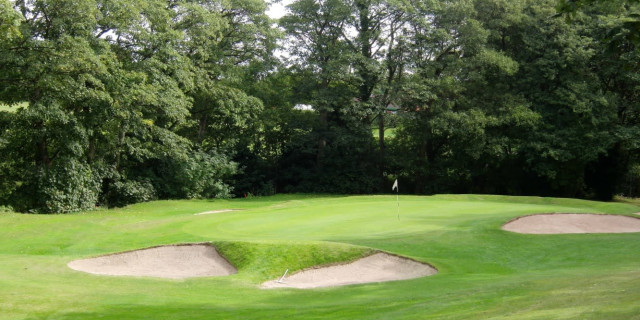
Why Golf is Good For You as You Get Older
THERE is an obsession with reducing the age profile of those who play golf socially. One of the benefits of the lockdown was that when courses opened their doors for business once again, we flocked back in huge numbers - and the age profile of the average club golfer has finally started to fall.
I hold my hands up and admit that I have a written a great deal about what the game needs to do in order to attract young people. But let’s not forget the benefits of playing golf for older players. And they are many and varied.
When we were unable to get out on the course last year many of us took advantage of our local surroundings and decided to go out for a daily walk. We need to average about 10,000 steps a day to stay healthy - a round of golf will see you taking more than 15,000 steps if you carry your clubs or push a trolley.
The R&A published a study last year looking at the benefits of playing golf. Chief executive Martin Slumbers said: "Scientific research clearly shows that there are significant physical and mental health benefits to be gained from playing golf. We believe that golf can provide a fantastic opportunity for people of all ages and abilities to have fun, get fit and socialise with family and friends - something that is important to today’s society.
“We need to position golf as a leisure pursuit that can be accessed and enjoyed by everyone and encourage advocacy for the sport as a moderate intensity physical activity by government agencies, public health bodies and health professionals.”
The R&A funded a Golf and Health Project, a study led by Dr Andrew Murray of the University of Edinburgh. Among its recommendations were calls for golf to be prescribed by GPs.
It’s not the first time such a recommendation has been made. A pilot scheme in south London in 2018 found that patients referred for golf saw levels of vigorous exercise triple, with significant boosts in life satisfaction, happiness and self-esteem. Researchers said ‘golf on referral’ could be particularly good at encouraging middle aged men to take up exercise - those who are often unlikely to respond to standard health initiatives.
And a study conducted by the University of Southampton last year revealed that golf can provide significant and lasting health benefits for more mature players in terms of improved muscle strength and balance, and it is something that should be encouraged. And that is without considering the benefits to their mental wellbeing.

It has been established that golfers under the age of 80 are stronger and possess better balance than people of similar ages who live a sedentary life, while golfers also possess better dynamic balance and static balance than non-golfers.
Gripping and swinging a club, walking, squatting and such like also leads to stronger arms and legs in golfers than non-golfers.
And golf also helps to keep excessive pounds off. The average golfer walks about four miles while playing 18 holes of golf, which means that they burn off more than 1,400 calories, and as many as 850 calories while riding in a buggy.
Walking also helps build muscle strength, improve cardiovascular functions, and increase endurance, which are all important to your health as we age.
Along with walking and building lower body strength, the golf swing promotes core muscle strength. The major muscle groups within the golf swing are the core region, and strengthening that area is an important way to prevent lower back pain. Your swing can also build and develop muscles in your chest, buttocks, back, and forearms.
For those who are looking for a workout while having fun, golf might be the perfect activity.
Related Content
Benefits of Golf For The Over 50s
10 Reasons Why Golf is Good For You
Social Benefits of Golf Are Increasingly Attractive
Bobby Jones, the greatest amateur ever to grace the fairways, once said: “Golf is mainly played on a five-and-a-half-inch course, the space between your ears.” And as golfers get older the game is a great way to keep your brain fit and active.
Playing golf releases endorphins which help to boost your mood and well-being (notwithstanding what may go through your brain when you hit three successive balls out of bounds or miss your third 12-inch putt of the round). The release of endorphins relieves stress levels, although that may seem hard to believe when you watch the likes of Tyrrell Hatton on the course. Golf also teaches the importance of patience and controlling emotions to prevent sending the mental aspect of the game into a tailspin.
Only a small percentage of club golfers ever achieve single-figure handicaps. For the vast majority, golf is about enjoying the company of like-minded people in a social environment and then sitting down with them in the clubhouse afterwards to enjoy a beer and a bite to eat.
When we retire, it can become more difficult to stay connected with friends.
But regular rounds of golf help to build and maintain relationships with friends as well as providing us with something to look forward to. And none of us should underestimate the importance of mental stimulation outside of the home with like-minded individuals.
So yes, overall, we would like to see more youngsters appreciating the joy of golf, but let’s not forget the benefits that can be enjoyed by each and every one of us. Get out there and enjoy this wonderful game.
Tags: GOLFERS Golf daily picks









